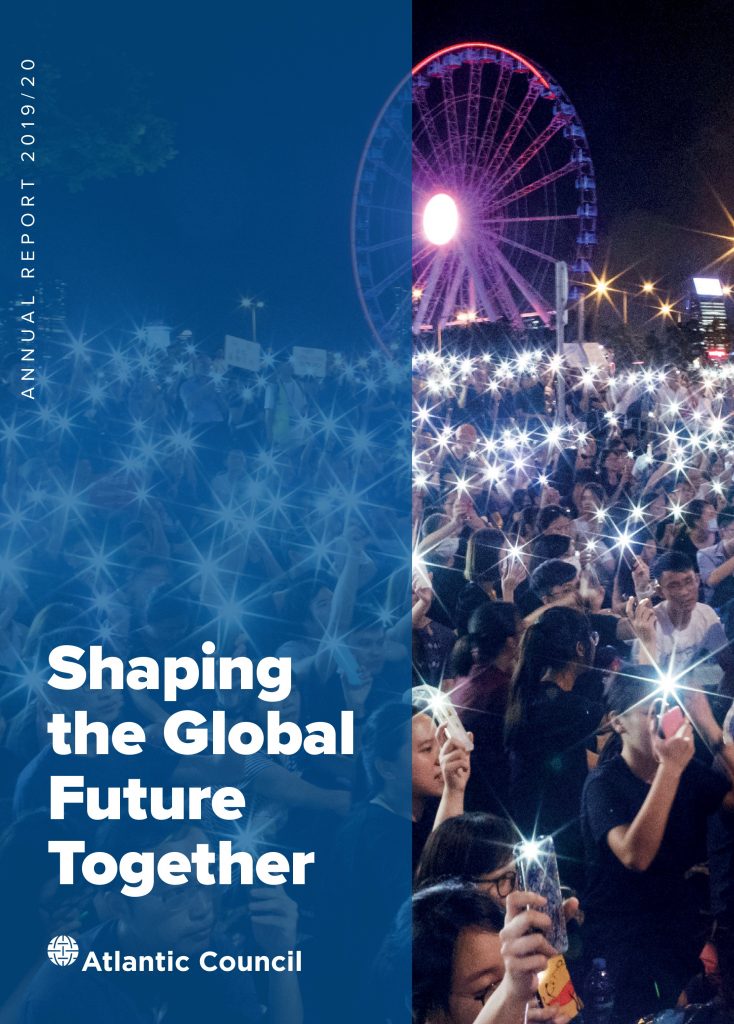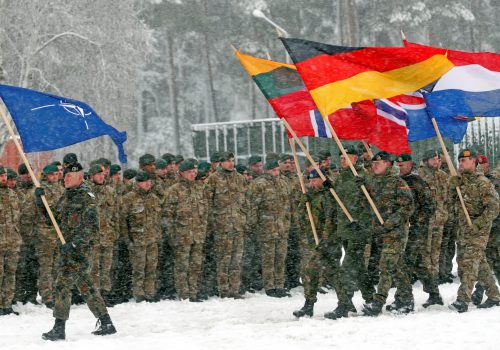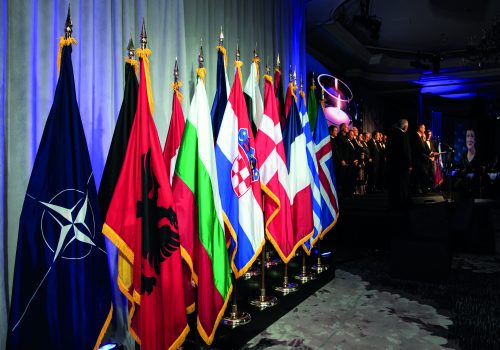The Future Europe Initiative
Advancing a strong, ambitious Europe and a forward-looking transatlantic partnership.
The Future Europe Initiative (FEI) promotes leadership, strategies, and analysis to ensure a strong, ambitious, and forward-looking transatlantic partnership.
The transatlantic relationship is the United States’ greatest asset. Since the Atlantic Council’s founding, Europe has been the United States’ political, economic, and security partner of first resort. North America and Europe have proven to be the most effective global force when acting together. Together, they laid the foundation for a liberal international order that offers the prospect of widely-shared security, prosperity, and freedom.
Today, this crucial relationship is challenged by both internal and external forces. Transatlantic leaders can no longer take the partnership for granted, nor should they give in to nostalgia or be in denial of the forces affecting it. Europe is in the midst of a historic transition, the outcome of which is of great strategic importance to the United States. The Atlantic Council’s Future Europe Initiative promotes the leadership and strategies required to bolster the vision of a strong Europe advancing a better global future in partnership with the United States. The initiative seeks to understand change in Europe, galvanize leadership, and forge a strategy of renewal.
FEI’s objective is to provide fresh thinking on the transatlantic relationship at a time of great power competition, rising authoritarianism, and technological and environmental challenges. The initiative seeks to foster engagement among policy makers, economic leaders, and citizens on both sides of the Atlantic, as well as to promote rising leaders and develop common solutions to defend liberal democracies.
Its key pillars of focus include:
• Building a Europe whole, free, and at peace by restoring trust in the European project, confronting backsliding, and integrating the peripheries.
• Developing a common strategy in great power competition to confront Russian aggression and Chinese assertiveness together.
• Restoring transatlantic leadership in the global economy and bolstering the economic foundation of the transatlantic community’s international strength by advancing growth, innovation, and competition policies.
• Promoting European efforts at defense integration and coordination.
• Educating US citizens and policy makers on developments in the European Union (EU) and their importance for the transatlantic relationship.
• Building a transatlantic consensus on issues of global consequence, such as energy markets and supplies, international financial flows, climate change, cyber security, and new technologies.
• Recommitting to common values and ideals across the Atlantic and with other partners by fostering an international order characterized by rule of law, democracy, human rights, and free markets.
• Bringing together the next generation of US and European leaders.
The Future Europe Initiative’s work is conducted with the strong belief that the resilience and strength of the European Union, alongside the unity of NATO, is a critical national interest of the United States.
In 2019, FEI hosted seventy events in ten countries which convened four presidents, four prime ministers, five foreign ministers, three defense ministers, three EU commissioners and nineteen ambassadors. It published five issue briefs and reports, including The United States and Central Europe: Tasks for a Second Century Together, which was co-authored by GLOBSEC and selected as one of the best think tank reports of the year by the Global Go To Think Tank Index Report.
In 2020, FEI will amplify its presence in key European countries and will launch an effort to rethink the US-German partnership. The Initiative will also launch a major series on US-EU relations, expand its work on Central Europe, and grow its efforts to address the future of Greece and the Euro- Atlantic future of the Western Balkans. Its work on transatlantic digital policy will become ever more relevant as the EU escalates its ambitions in that space.
Next:
Read the full report:

Annual Report 2019/2020
John FW Rogers, Chairman of the Atlantic Council, and Fred Kempe, CEO and President, explain how our past year’s performance, and a dozen years of growth and innovation, helped position us for the historic disruptions of 2020. Read the full introduction.
Image: Image: Prime Minister of the Netherlands Mark Rutte speaks with the Atlantic Council’s Damon Wilson.



